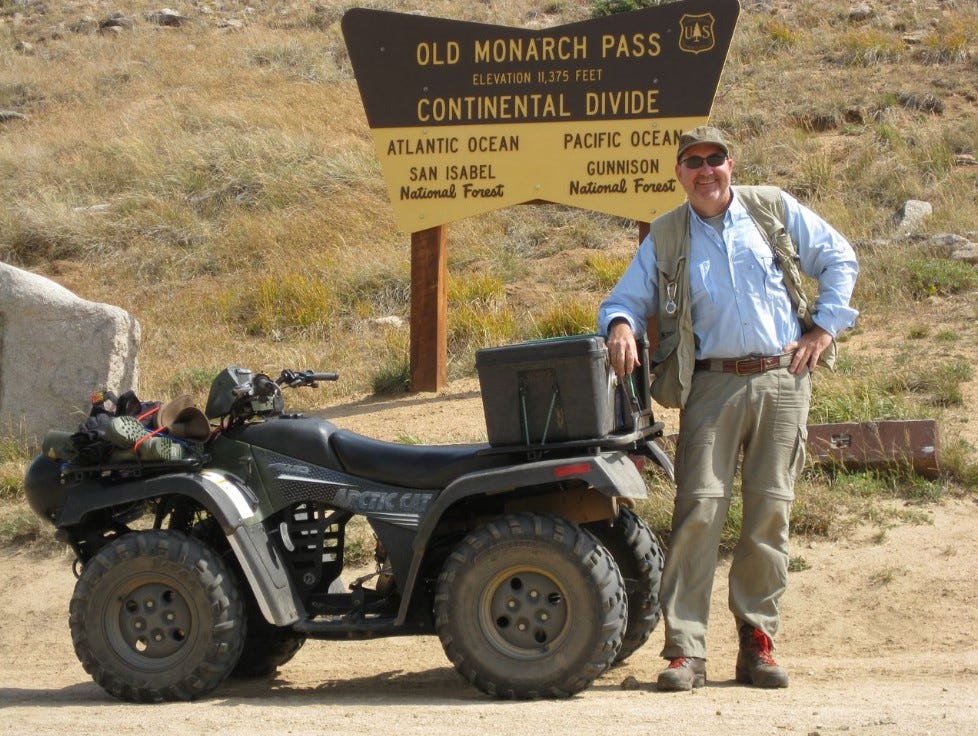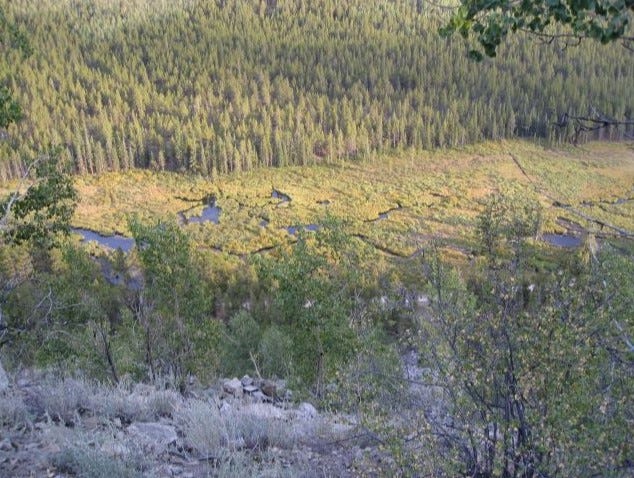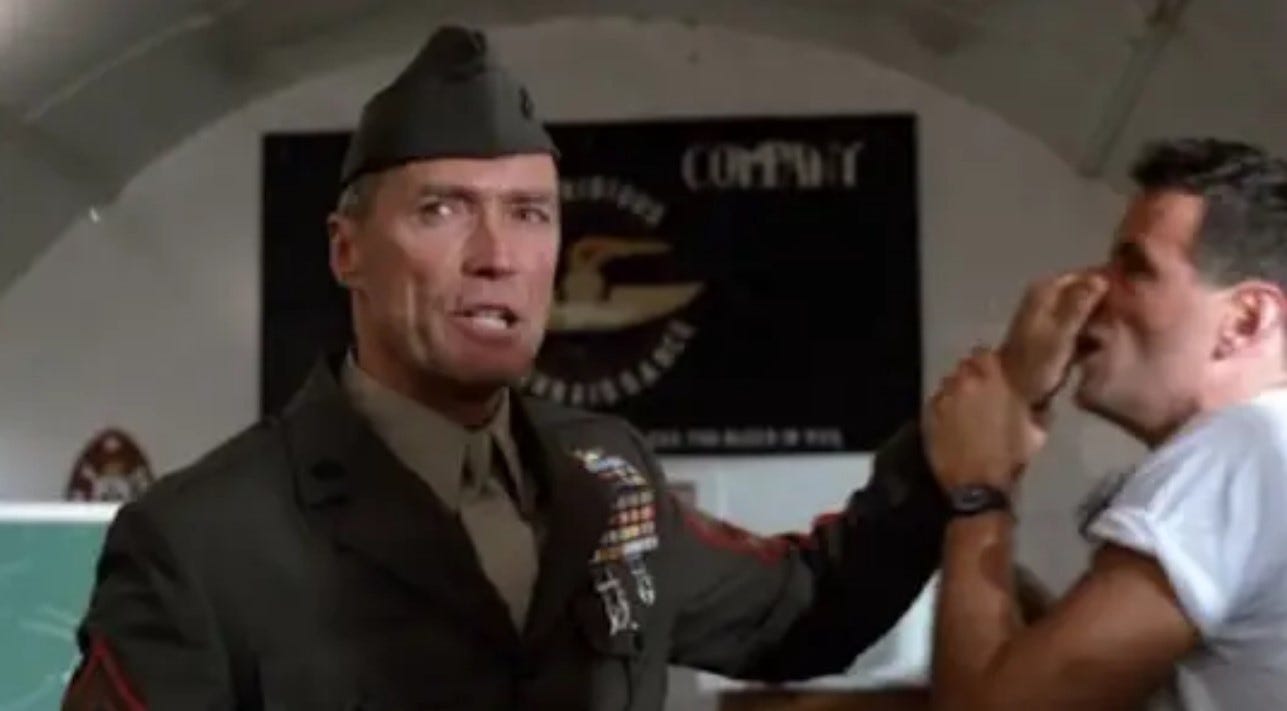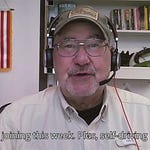The bear bag I had so carefully spotted the night before was suspended directly over their pickup camper. Of all the places.
I was ready for breakfast, but it was early, and there appeared to be occupants in the camper. Might not be the best time to meet the neighbors.
The Great Outdoors
I had been primitive camping along Middle Quartz Creek in the Gunnison National Forest, two miles east of Pitkin, Colorado. It was a solo trip, just me and my Arctic Cat 4x4 all-terrain-vehicle, along with a tent and all the accoutrements of a backpacking trip.
When one backpacks from an Arctic Cat, we call it Catpacking. I like hiking, but driving the ATV is sooooooo much easier. I’m not sure what you’d call it if you used a Kawasaki or a Polaris. Cowpacking? Polecatpacking?
This sort of recreation was unheard of in human history until about the last 50 years. Incredible, this explosion of technology and economics. But I digress.
I had left my pickup in the parking area at Taylor Park Reservoir, west of Buena Vista, some 20 miles away. Well maintained jeep trails (thank you, local Jeepers!) connect Taylor Park to Tincup to St. Elmo to Pitkin. Crossing the Continental Divide three times, a 56-mile loop offers a 6-hour drive for ATV, UTV, dirt bike or Jeep.
The trails are rugged in places but suitable for the novice. The machine removes most of the effort of seeing the landscape.
The scenery is unparalleled in the Lower 48.
Primitive camping is available almost everywhere, but the flat spots are along the rivers. My favorite site on Middle Quartz Creek offered the appearance of seclusion yet with amenities close by. The convenience store at Pitkin was two miles west; an improved campground with a pit toilet was two miles east.
The “primitive” thing brings us back to who else may be out there, not counting scores of other adventure-seekers doing roughly the same thing I was doing. This is bear country.
Someone Else’s Food Chain
To be clear, Colorado has black bear, not Grizzly. Blacks are reputed to be not as aggressive as brown (the Griz), but a medium-size black outweighs me by multiples. He can be as friendly as he wants, but if I am between him and his honey-roasted peanuts, he will eventually end up with the peanuts.
For bear protection, a firearm is neither a good first choice nor a reliable last resort. Pre-planning is far more effective and harmonious.
If I had chosen to drive my pickup to the campsite before unloading the bike, I could simply have stored the foodstuffs in the cab overnight. Problem solved. But no, I was channeling my inner Jeremiah Johnson and was determined to go as primitive as possible. Without actually walking.
After supper, what to do with the aromatic and tasty foodstuffs?
Rigging a bear bag
Filling a nylon bag the size of a pillow case with everything that smelled good — bacon, bread, apples, nuts, coffee, cooking oil, soap, toothpaste, etc — I tied it shut with one end of a lightweight 50-foot cord. The Cat and I then went in search of a likely tree with a branch 20 feet above ground level.
In a clearing 300 yards from my campsite I found just the place. Tying the free end of the cord to a fist-sized rock, I tossed the rock up and over the branch, letting the gravity pull it down to me. In two or three tries it was positioned.
I then hoisted the bag up so that it hung suspended at least 15 feet above ground level. At only 8 feet off the ground, it would be a pinata for a bear. If 15 feet was not high enough… well… the thought of a bear that could swipe down a bag that high was not something worth contemplating.
The free end tied off around the trunk of the tree, I moved back to my campsite and turned in.
Slept well.
No visitors, although a single vehicle crept by on the road 30 yards away, late campers cranking slowly into the wilderness in search of their own space after dark.
Surprise at Dawn
I was up in the pre-dawn. Kindled a small campfire. Heated water from the creek for washing. Had a quick shave. Sat in a camp chair to read my Bible and, predictably, was overcome with a sudden craving for coffee, bacon and biscuits.
I removed the dew cover from the saddle of the Arctic Cat, mounted up and idled up the road, taking in the sights, sounds and aromas of the awakening forest. Middle Quartz Creek murmured on my right-hand side. A tall, tree-covered mountain loomed on my left, toward the 12,000-foot summit of Hancock Pass. A bend in the trail opened a vista onto the immense valley where Middle Quartz meandered among low brush, constant and faithful.
Gorgeous. You don’t get a lot of that in Kansas.
Rounding another bend revealed the sight of my bear bag. From 50 yards away it hung lifeless, just as I had left it, nearly invisible among the background of cedars.
Not 20 feet in front of the bag tree was a Chevy pickup truck with a camper shell, backed in toward the edge of the forest. An awning extended from the passenger’s side of the shell, offering protection for a small folding table and two canvas chairs. There was no sign of activity.
I stopped the bike and considered.
Given that the camper had not been there 10 hours ago, and seeing that it was now 6:00 AM local time, it was virtually impossible that the camper was uninhabited.
I reversed and crept away, idling the engine to avoid waking my oblivious and inconsiderate neighbors.
Even the canned Beanie Weenies and sealed trail mix had gone into the bear bag. I returned to my camp chair, Bible, and a Nalgene bottle with purified water.
Two hours later I approached the site again, stomach growling, and found the truck still there but uninhabited. I invaded the site, making lots of noise and offering loud unanswered greetings so as not to give alarm. I recovered the bag and cord, and contemplated the discontinuities of life that interrupt such carefully laid plans.
The bear bag has become a metaphor for Things That Can Go Wrong.
“Adapt, Improvise and Overcome”
Clint Eastwood was not the first who ever said this (Heartbreak Ridge, 1983) but many think so. The saying has been part of the unofficial U.S. Marine Corps credo for decades.
It signifies that success in any venture comes only through real-time hands-on response to immediate developments. In this way, it hearkens back to a 19th century statement by a Prussian general and paraphrased by other sage strategists:
“No plan extends beyond the first encounter with the enemy.”
Field Marshal Helmuth von Moltke the Elder, 1871
Von Moltke was subsequently quoted in various forms by von Clausewitz, Erwin Rommel and Dwight Eisenhower. Lately, heavyweight boxing champion Mike Tyson gave modern voice to the axiom:
“Everybody has plans until they get hit for the first time.”
Mike Tyson, 1987
Real Life, Real Adaptation
I have been contemplating this necessity of adaptation as I enter (or am squarely within) the Fourth Quarter of my time on this terrestrial ball.
Twenty years ago, at the height of career, income, achievement, track meets and soccer matches, I could not have envisioned the startling changes we have seen. Social media, moral decline, national debt, external international threats, internal political polarization, alarming increases in costs for basic necessities of life.
I recognize the crying need for two adjustments:
Recognize the external forces that impact me
Respond with immediate steps to protect assets and lifestyle.
And a third is always crowded out by the urgency of the first two:
Relate my accumulated wisdom — such as it is — to those who follow.
To that end, I have joined forces with a friend and colleague to launch Your Best Retirement, a program to focus on a tactical approach to succeeding in Health, Wealth and Living Your Legacy. (We do not recommend or sell financial products, and we do not offer financial advice.)
Please join us by subscribing to the weekly Your Best Retirement newsletter. It will launch during the first week in June. Click the link below and I will add your email address to the subscriber’s list. There is no charge.



















Share this post